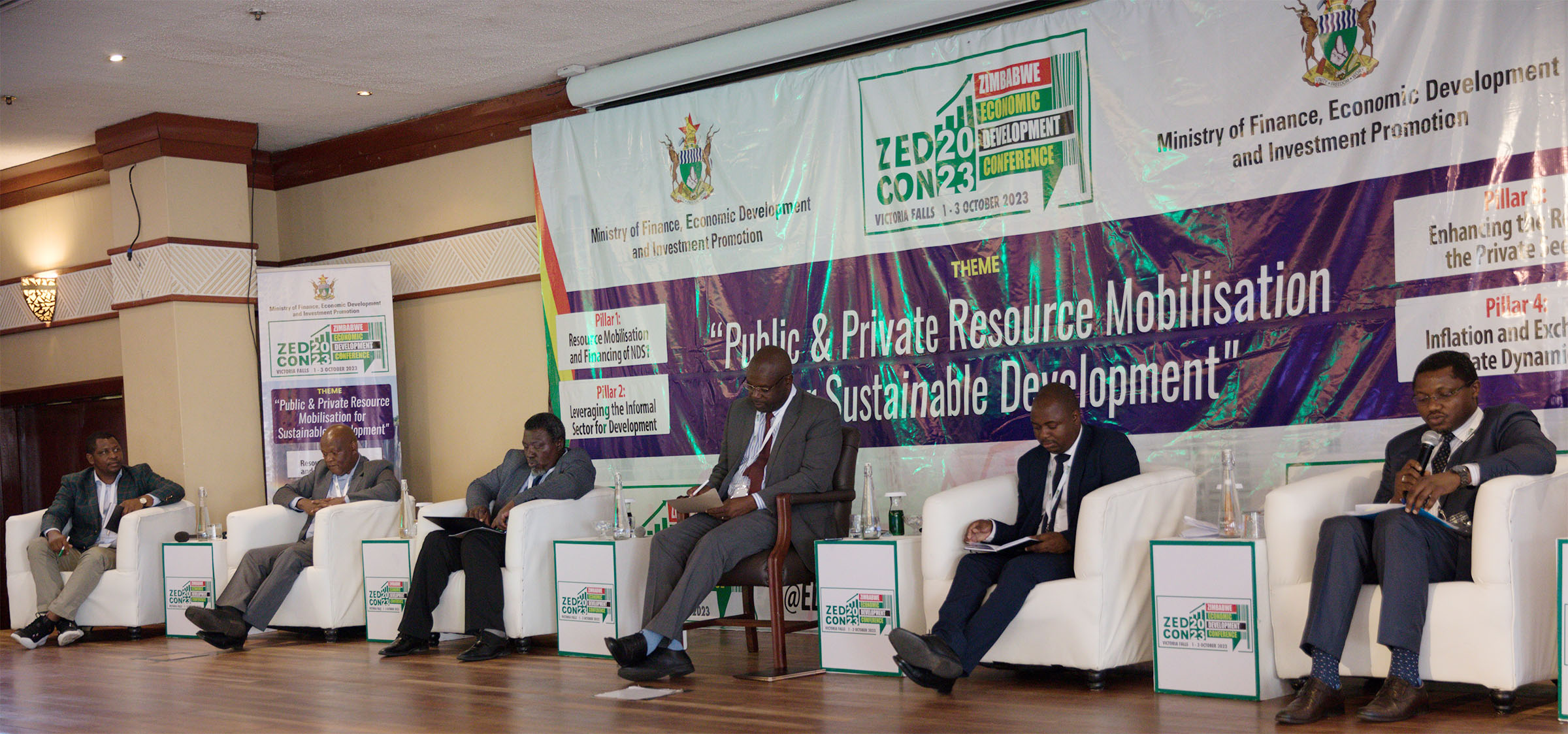UNDP presentation at sophomore Zimbabwe Economic Development Conference (ZEDCON)
Digitisation key for formalizing the informal sector
September 11, 2023

Digitization is rapidly changing how businesses operate and bringing about positive benefits to the ease of doing business. Companies across the globe are adopting digital technologies and enhancing their operations for the outside world. The informal sector is also adapting to the wave of digitization. In a paper presented at the Second Edition of the Zimbabwe Economic Development Conference, titled "Leveraging the Informal Sector for Development in Zimbabwe," UNDP emphasized the need to explore policy changes that can create a favourable environment for the sector's growth and prosperity. Digitization was mentioned as a key factor that can drive the informal sector into formalization.
Digitization provides unique opportunities for financial inclusion, maximizing development in the country. Melusi Tshuma, National Coordinator for UNDP Tax for SDGs, emphasized that Zimbabwe can leverage new technologies to benefit from the informal sector. “Policymakers should facilitate the deployment of solutions to digitize the activities of Micro Small and Medium Enterprises and consider offering subsidies and tax incentives to encourage them to adopt digital financial services. By adopting digital finance, the informal sector can overcome eligibility and cost barriers to formal financial inclusion. This will enable the sector to enjoy the benefits of digital transactions, access to markets, instant information transmission and enhanced transparency.”
Tshuma proposed recommendations for policymakers to assist MSMEs with investing in financial infrastructure, building digital records, and developing safe and efficient payment systems in collaboration with the private sector. He emphasized the need for consumer and data protection frameworks that build trust and confidence in using digital financial services.
“It is crucial to prioritize demonstrating the safety, trustworthiness, and usefulness of digital payments by implementing transit and utility bills. There is a need for a regulatory framework that supports cross-border payment solutions for trade flows, e-commerce and remittances.”
Speaking at the same conference, the UN Resident Coordinator, Mr. Edward Kallon, emphasized the crucial role of the private sector in driving economic growth and promoting sustainable development in Zimbabwe. He acknowledged that the United Nations recognizes the importance of a thriving private sector in achieving the Sustainable Development Goals (SDGs) through partnerships. This includes fostering economic growth, creating decent jobs, promoting innovation, and supporting social and environmental initiatives.
“The United Nations firmly believes that achieving meaningful and sustainable economic growth is challenging without the full engagement of the private sector. To mobilize them for people and the planet, the UN collaborates with the private sector and philanthropists under the Global Compact. The private sector-driven sustainable economic growth is beneficial not only for the business but also for people and the planet.”
The President of the Republic of Zimbabwe, Dr. Emmerson Dambudzo Mnangagwa, officially opened the conference. He stressed the importance of different sectors in achieving sustainable development.
“This year's conference theme, Public and Private Resource Mobilization for Sustainable Development highlights the need for all of us to explore and expand ways of accessing resources to achieve sustainable socio-economic development. It is critically important to maximize innovative strategies for resource mobilization by both the public and private sectors to ensure sustainable development.”
UNDP’s policy recommendation will be incorporated in the 2024 National budget and national fiscus policy. UNDP will continue supporting sustainable development initiatives and Zimbabwe’s National Development Strategy (NDS1) towards becoming a middle-class economy by 2030.

 Locations
Locations



